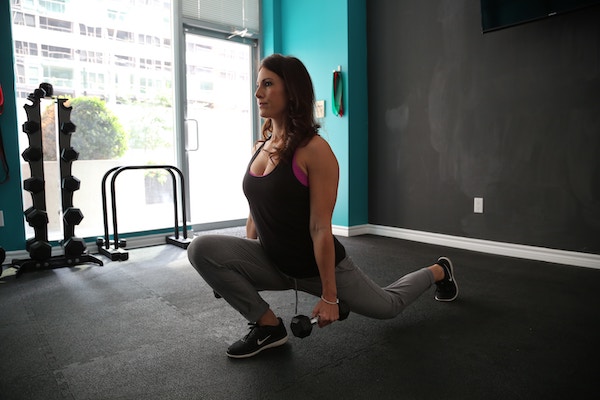Unique And Interesting Career Options With A Sports Medicine Degree
Achieving Goals

Playing sports is a great way to remain physically active. Sports, regardless if it’s played for leisure or competition purposes, can help individuals manage weight, control blood sugar and insulin levels, improve mental health, and reduce risks of heart diseases.
Playing sports can provide a wealth of benefits, but suffering from injuries can prevent someone from engaging in this activity. While some injuries are minor and can be treated with medications and therapies, others are severe to the point where the person can no longer play sports for the rest of their lives.
If you want to help athletes and physically active individuals to improve their performance, a sports medicine degree can be a good fit for you. This degree covers topics and training that will allow you to help individuals recover from injuries. Along with preventing future injuries. With this degree, expect to work with amateur athletes, individuals who want to experience optimal results from their exercise programs, and those who want to regain full function after suffering from injuries.
When you decide to learn with online courses and earn a sports medicine degree, you’ll have better chances of getting into these careers in the future:
Athletic Trainer
Athletes aren’t born; they are individuals who are willing to be trained and to continually improve their performance. Athletic trainers help aspiring athletes achieve this goal. In fact, an athletic trainer plays a significant role in any college, high school, or professional sports team.
A sports medicine degree qualifies you to work as an athletic trainer. With this kind of profession, you will be responsible for an athlete’s performance, making sure that they avoid suffering from any injuries when playing. An athlete’s condition on and off the field depends on your efficiency as an athletic trainer.
Aside from having the necessary educational background, working as an athletic trainer will also require you to learn the nature and rules of a specific sport. Having this background is vital as you’ll have to recommend strategies to athletes on how they can perform better in every game without compromising their safety.
Athletic trainers should also be committed to their jobs as they continually work with athletes even during the off-season. Athletic trainers create training exercises apt for the skills of the athlete to ensure that they are in peak condition all year long.

Nutritionist
A person’s physical abilities don’t solely depend on the frequency and intensity of their workouts. Everything a person eats also contributes to their physical abilities because food works as fuel for their bodies.
After successfully earning a sports medicine degree, you can also work as a nutritionist. With this role, you will assess the current diet of your clients. Then come up with better and healthier meal plans. Nutritionists work with different clients – from athletes to gym buffs to individuals who just want to eat clean.
All of the meal plans you provide are tailored-fit to meet the demands and lifestyle of your clients. For example, as a nutritionist for athletes, you have to make sure that your client consumes the right amount of calories every day. Athletes are physically active individuals, which means that their bodies burn a lot of calories during games and training.
Nutritionists can work in different settings, such as in hospitals, nursing homes, cafeterias, and schools. They can also choose to work as freelancers and conduct consultations with their clients during their preferred schedule and location.
Team Doctor
The performance of a single athlete can affect an entire team. The inability of goalkeepers to block or intercept shots made by the adversary due to injury can prevent the whole team from winning. The efforts of the other team members will be put to waste if one member doesn’t play well.
A team doctor can prevent this from happening by ensuring that each member performs at their best. When you work as a team doctor, you will be responsible for helping players recover from common illnesses. These can include colds and viruses along with treating their injuries in the fastest way possible.
Team doctors go over an athlete’s x-ray and recommend tests to determine the severity of the injury. Through these tests, a team doctor will then create a recovery plan for the athlete so they can get back on track fast. Team doctors also collaborate with other players of the team to monitor the injured member and assess if they are well enough to play again.
Aside from treating injuries, team doctors also promote healthy living among teams by monitoring members for signs of alcoholism, substance abuse, and even depression. Team doctors pay extra attention to every member’s overall health and wellness to ensure that the team wins in every game.
Team doctors can work with colleges, high schools, and amateur sports teams. Though, they usually provide services to professional sports teams.

Orthopedic Surgeon
Injuries can affect different parts of the body and can have varying levels of severity, as well. While some first-time gym-goers might only suffer from a muscle tear and can recover after weeks of rest. Others can suffer from severe shoulder injuries, such as a dislocated shoulder and rotator cuff injury. The more severe shoulder injuries will require professional help.
Major injuries require the services of an orthopedic surgeon. These physicians work by diagnosing, treating, and preventing injuries that affect the musculoskeletal system of the body. Orthopedic surgeons utilize non-surgical and surgical treatments to treat spine disorders, sports injuries, infections, and tumors.
Orthopedic surgeons can advise clients to undergo non-surgical treatments for their injuries, which can include exercise and rehabilitation. However, if the client doesn’t respond to this kind of treatment, the orthopedic surgeon will recommend surgical treatments.
Working as an orthopedic surgeon is one of the most high-paying jobs in the sports medicine industry. However, before you can work as one, you have to complete another four years of medical school. Then it’s another five years of orthopedic surgery residency in a hospital after earning a sports medicine degree.
Aside from having the right educational background, orthopedic surgeons are also expected to stay calm and work well under pressure. Since orthopedic surgeons usually have to replace, realign, or remodel joints, having the ability to focus even when placed under stressful situations is a must.
Physical Therapist
Physical therapists are considered as movement experts because they enhance their client’s lives by prescribing the appropriate exercise routines and providing hands-on care. Although physical therapists usually work with athletes, they also work with clients who want to improve their mobility in order for them to lead active lifestyles.
When you work as a physical therapist, you will work closely with your clients to help them prevent and manage their current health condition. Allowing them to enjoy long-term vigor. Your responsibilities as a physical therapist include developing treatment plans to help your clients reduce pain. Along with preventing disability and restoring physical function.
Dance Movement Therapist
Earning a sports medicine degree qualifies you to work as a dance movement therapist. Aside from encouraging clients to sweat and become physically active. The experience working as a dance movement therapist allows you to help clients feel good about themselves. While also overcoming mental issues.
Unlike other professions that only focus on the physical health of clients, a dance movement therapist can also help clients combat issues on self-esteem by mirroring movements that can help the client feel accepted. Clients can also express their anger and other extreme emotions through dance. Furthermore, a dance movement therapist can encourage a calmer expression by changing the tempo of the music.
Having the platform to release certain debilitating emotions can help the clients ward off stress. While improving cognitive functions, and feeling happier.

Exercise Physiologist
Anyone can exercise, but only very few do exercise with the right routines, frequency, and intensity. More often than not, individuals only exercise just for the sake of it. They don’t usually look into their current health status and create an achievable fitness goal fit for themselves. The inability to analyze such factors is one of the reasons why a lot of people workout but don’t see any results even after months.
If you don’t want the efforts of these people to go to waste, consider working as an exercise physiologist after earning your sports medicine degree. This job allows you to help clients achieve their fitness goals faster and easier. Through the creation of a plan based on their cardiovascular functions and metabolism.
Aside from helping clients maintain their health, an exercise physiologist also helps clients build endurance, strength, and flexibility. Exercise physiologists can design exercise programs tailored-fit to the healthcare needs of individuals and the performance goals of athletes.
Research Extensively
If you’re truly passionate about helping individuals with injurys and promoting the benefits of physical activities, start looking for schools that offer a sports medicine degree. Take your time to assess these available choices and weigh the pros and cons of each. Check the credibility of the school you want to get in. Be aware of the subjects covered in the degree. The more you know, the easier it’ll be for you to learn from your degree. So you can eventually, dive into the careers listed above.

 With spring just around the corner, this month is all about renewal and realignment—not just in your career but in every corner of your life. Think of it as a fresh start to shed what no longer serves you and embrace what fuels your growth. Download our free tech backgrounds to dress […]
With spring just around the corner, this month is all about renewal and realignment—not just in your career but in every corner of your life. Think of it as a fresh start to shed what no longer serves you and embrace what fuels your growth. Download our free tech backgrounds to dress […]
